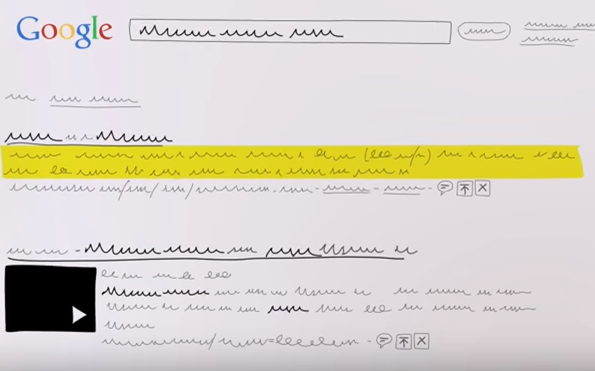Without search engines like Google, it would be practically impossible to find the information you need when you browse the web.
But have you ever thought about it that how Google fetches all of these search results within seconds?
Pretty exciting, isn’t it?
In this article, we will discuss how Google finds web pages matching your query and determine the order of search results.
While Google shares general facts about its algorithm, the specifics are a company secret. This makes Google search engine stand out of the competition.
In simple words, if you are looking through a large book with an impressive index telling you about where is everything located. An index is a map to your book. Similarly, Google indexes the web pages in a manner of a prepared algorithm that decides which pages will be displayed first in the search query.
This post will simplify things for you in details.
CONTENTS
1. Understanding Google – The Search Engine

Well! It’s not as simple as you think.
There is no doubt that Google is a giant powerful beast that rules the web. Like other search engines, Google uses a specific algorithm to bring search results. Google provides what is inarguably the most popular and effective search engine result pages (SERP). Due to its incomparable dominance to extract the information within seconds, in 2002 the word “Google” was declared a verb.
Let us explore the art and science that makes it possible.
To deliver web pages on SERPs, Google goes through three key processes:
- Crawling – Discover pages to add in the Google Index stack
- Indexing – It complies a massive index of web pages after crawling and locate it
- Serving – Return relevant results depending on the user query
- Crawling
Google derived software known as Googlebot is a web crawler, by which it makes the crawling process. Let us understand the entire process in deep.
A program by Googlebot performs the search crawl across millions of web pages over the Sitemap provided by the webmasters. Next, it visits from link to link and bring data about those web pages back to Google’s servers to add them to the list of web pages to crawl.
Now, the crawling process begins in reference to past crawl. Later, it determines how many pages need to be fetched from each site.
The software pays special attention to new sites, changes to existing sites and dead links. Google keeps the revenue generating Ad service separate from the crawling service as it doesn’t accept any payment to crawling any website and give justice to the content of the web page.
- Indexing
Google’s web crawlers report on the pages they visited, and now it’s time to index them all, so we know exactly how to look things up. It includes information about words and their locations. When you search, at the most basic level, our algorithms look up your search terms in the index to find the appropriate pages. When they index a web page, it is added to the entries for all of the words it contains.
Google cannot process the rich media files or dynamic pages during indexing. But can process content tags and attributes such as Title tags and ALT attributes.
- Serving Pages
Google works hard to improve user experience and serve them with the utmost helpful information or content. For this, it follows strict measures without being biased over website or web pages. Google has determined over 200 factors to fetch out the relevant search results. As studied above, one of them is brand authority. It is the measure of the importance of a page based on the incoming links from other pages.
I’ll try to explain more. Each time your website gets a backlink from other high-quality site adds to your site’s authority. Additionally, it also takes care of the spam links as it impacts the search results. Google considers the best links that are given based on the quality of your content.
When you start a search on Google, you can find the information you’re looking for faster using search predictions. There are features such as Google Autocomplete to display the terms related to one is typing on the search engine. These predictions are not an answer to your search but the relevant keywords used by people or the recorded search terms by Google.
2. How Google ranks web pages?

The last step is to know what Google takes to rank the web pages.
So for instance, if someone comes to Google and types ‘ java developer’ then Google thinks of web pages that matches ‘java developer’ and will come up with those web pages that consist of words with a combination of ‘java developer’ in it.
It carries a process what is called ‘Document Selection’ and filters the web pages according to the query to figure out the relevant information for the user. Google says it takes 200 factors to authorize the page to stay on the top list of the search queries. This is how PageRank works.
Final Thoughts
For even the most typical query, Google has millions of results in an instant. This makes it the most trusted and desirable search engine.
We studied how Google figures out the list of pertinent information relating to user’s query. It works in accord with the user interest by displaying related terms, common misspellings, and popular queries. The keywords entered by the user are automatically generated by their web crawlers and search algorithms.
So, this was all about Google and how does the search work to bring you all to the desired information in a blink!
See you very soon with more of the interesting topics,
Till then, enjoy Googling 🙂
Important Links:
https://www.google.com/search/howsearchworks/
https://www.google.com/search/howsearchworks/crawling-indexing/
https://www.google.com/search/howsearchworks/algorithms/









Comments